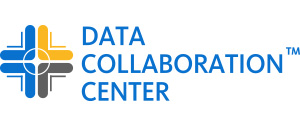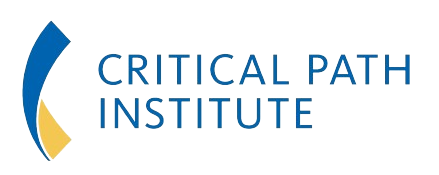 |
 |
 |
Tucson, AZ, and Downingtown, PA — December 4, 2017 — Critical Path Institute‘s (C-Path) Data Collaboration Center (DCC) and the Friedreich’s Ataxia Research Alliance (FARA) have announced that they will work together to develop an aggregated database of clinical data for Friedreich’s ataxia (FA). Use of this database will promote collaborative research to support the understanding of natural history, potential biomarkers, and potential clinical endpoints for patients with FA, which will help researchers develop more efficient clinical trial protocols to test new therapies more quickly and effectively.
“FA is a rare disease which is progressive, affects multiple organ systems, and is fatal. Treating the disease is an urgent unmet need. FA research has reached a critical juncture, where several therapies have undergone or are in clinical trials, and additional new therapies are expected to start clinical development in the next few years. The purpose of this project is to leverage and share as much information as possible, to more fully understand progression of disease, how that progression can be captured in measurable endpoints, and the effect of placebo treatment. We want to ensure that we are using all the information available to design the most efficient and robust clinical trials, giving potential therapies the best chance of success,” explained Jennifer Farmer, FARA’s Executive Director.
The project will establish an integrated database of clinical data for FA that can be shared and utilized by existing FA researchers. It will enlist companies that have carried out clinical trials in FA to obtain contributions of clinical data, as well as sharing natural history data collected by FARA’s collaborative clinical research network.
Three datasets have been promised for the project, with the first placebo-arm dataset expected to be shared in the next few weeks. Sharing additional datasets is under discussion. The de-identified datasets will be aggregated into a single database in a scientifically rigorous manner by C-Path’s DCC.
Launched in 2014, the DCC was founded to provide large-scale data solutions for scientific research, and it will play a key role in this collaborative project, using its experience in clinical data standards, data aggregation, and data sharing.
“With a long history of expertise in data standards development, curation, and oversight of multiple data sharing initiatives, C-Path has the unique opportunity to help coordinate the collaborative contributions from data owners and integrate that data into a single database for this rare disease. Our approach has been successfully implemented in multiple C-Path consortia, and it is our hope that this proven experience will translate well toward the ongoing success of this important project,” said Richard Liwski, Director of the DCC and C-Path’s Chief Technology Officer.
About Friedreich’s Ataxia:
Friedreich’s ataxia (FA) is a debilitating, life-shortening, degenerative neuromuscular disorder. About one in 50,000 people in the United States has FA, with most having onset of symptoms between the ages of 5 and 18. Adult, or late-onset, FA is less common (less than 25% of diagnosed individuals), and can occur anytime during adulthood. FA is inherited in an autosomal recessive manner, meaning that individuals with FA have two mutated or abnormal copies of the FXN gene. It is estimated that 1 in 100 people are carriers; carriers do not exhibit symptoms of FA. The FA gene mutation limits the production of a protein called frataxin. Frataxin is known to be an important protein that functions in the mitochondria of a cell. Frataxin helps to move iron and is involved with the formation of iron-sulfur clusters, which are necessary components in the function of the mitochondria, and thus, energy production. Specific nerve cells (neurons) degenerate in people with FA, and this is directly manifested in the symptoms of the disease.
About the organizations:

Critical Path Institute (C-Path) is an independent, nonprofit organization established in 2005 with public and private philanthropic support from the Arizona community, Science Foundation Arizona, and the US Food and Drug Administration (FDA). C-Path’s mission is to catalyze the development of new approaches that advance medical innovation and regulatory science, accelerating the path to a healthier world. An international leader in forming collaborations, C-Path has established numerous global, public-private partnerships that currently include over 1,450 scientists from government and regulatory agencies, academia, patient advocacy organizations, and dozens of major pharmaceutical companies. C-Path is headquartered in Tucson, Arizona. For more information, visit www.c-path.org.

The Friedreich’s Ataxia Research Alliance (FARA) is a national, public, 501(c)(3), nonprofit, tax-exempt organization dedicated to the pursuit of scientific research leading to treatments and a cure for Friedreich’s ataxia. FARA’s mission is to marshal and focus the resources and relationships needed to cure FA by raising funds for research, promoting public awareness, and aligning scientists, patients, clinicians, government agencies, pharmaceutical companies, and other organizations dedicated to curing FA and related diseases. For more information, visit www.curefa.org.
C-Path contact:
Kissy Black
615.298.1144
kissyblack@lotosnile.com



